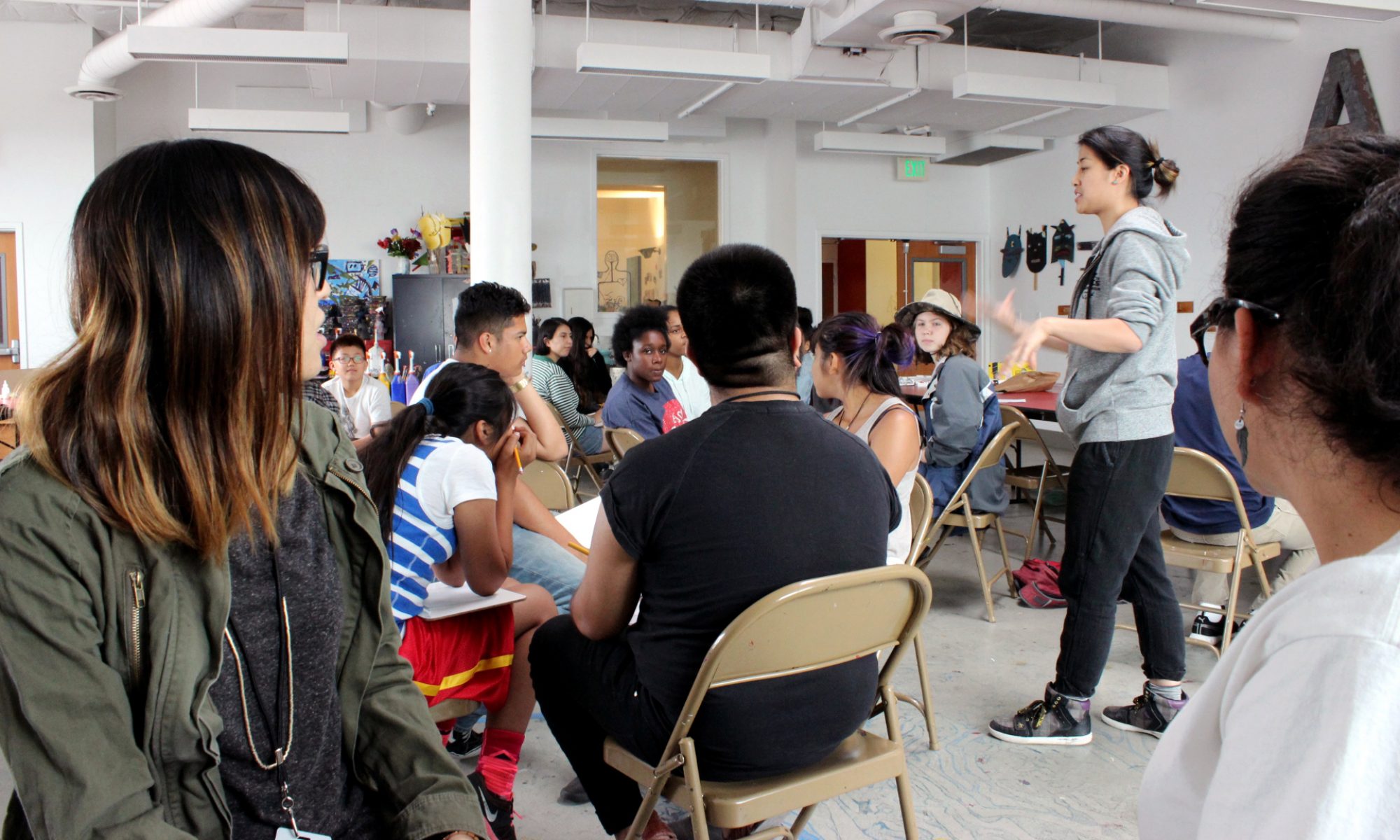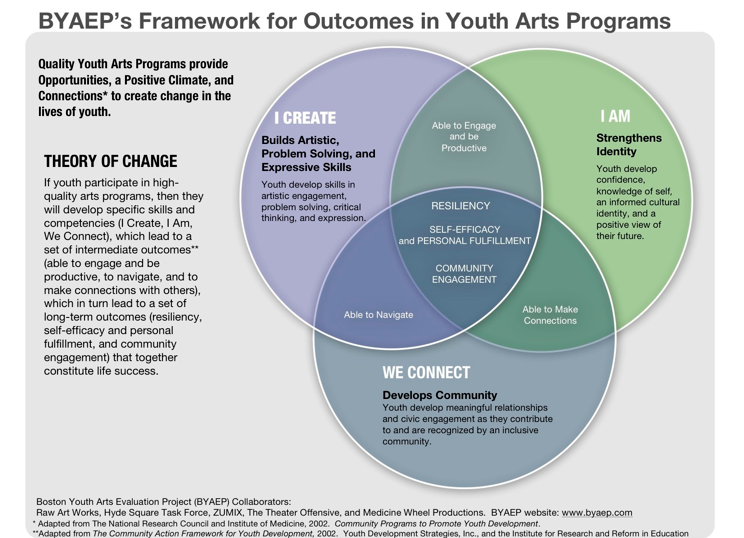To encapsulate the positive outcomes that occur for young people who participate in CYD programs, the Boston Youth Arts Evaluation Project (BYAEP), a partnership of practitioners, program evaluators, and funders, developed the following theory of change, Framework for Outcomes in Youth Arts Programs (2012):
The BYAEP theory of change posits that:
- If youth participate in high-quality arts programs, they will develop specific skills and competencies (I Create, I Am, We Connect),
- which, in turn, leads to a set of intermediate outcomes (able to engage and be productive, to navigate, and to make connections with others),
- which in turn leads to a set of long-term outcomes (resiliency, self-efficacy and personal fulfillment, and community engagement) that together constitute life success.
The BYAEP framework is consistent with other models of a theory of change for CYD, for example Mosaic Youth Theatre of Detroit’s Excellence on Stage and in Life: The Mosaic Model for Youth Development Through the Arts, which categorizes the key outcome areas of its CYD program as Skills, Self, and Society. Skills in the Mosaic Model includes what BYAEP calls I Create; Mosaic’s Self relates to BYAEP’s I Am; and Society in the Mosaic Model is akin to We Connect in the BYAEP framework. These theories of change reflect thoughtful deliberation of high quality CYD programs and how they support positive outcomes for young people.

